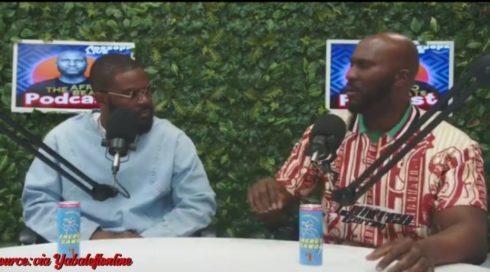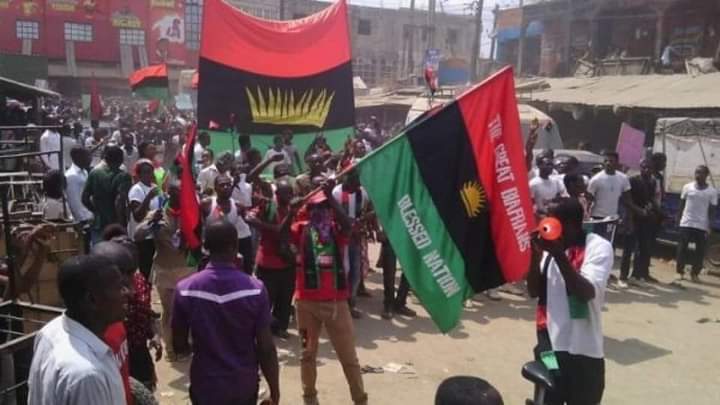Falz’s Strategic Move: Declines Criminal Defamation Suit Against Activist VeryDarkMan, Sparks Social Media Debate

Rapper and activist Falz, known for his vocal stance on social justice in Nigeria, recently made headlines for choosing not to pursue a criminal defamation case against fellow activist VeryDarkMan. The dispute between the two has garnered widespread attention, especially on social media, with followers keenly analyzing the dynamics of their interactions. Falz’s decision to avoid litigation despite being a lawyer has stirred debates among fans and critics alike, raising questions about his stance on free speech and the legal system.
VeryDarkMan, whose activism has primarily revolved around holding individuals and institutions accountable, reportedly provoked Falz by daring him to take legal action. Falz’s response, opting for a more restrained approach, appears to emphasize his commitment to the principles of open dialogue and transparency. This decision is seen as a departure from the more aggressive strategies commonly employed by celebrities in similar situations.
Background: Activism and Ideological Differences
Falz, whose full name is Folarin Falana, has established himself as a prominent figure in Nigeria’s music and social activism scene. From his satirical music addressing social issues to his participation in the #EndSARS protests, Falz has consistently utilized his platform to advocate for change. VeryDarkMan, on the other hand, is a lesser-known activist whose digital footprint suggests a focus on accountability and direct confrontation, often using social media as a tool for public discourse.
The clash between Falz and VeryDarkMan is not merely personal but is rooted in differing ideologies on activism. While Falz’s approach has often involved art, subtlety, and advocacy through established platforms, VeryDarkMan’s method is perceived as more confrontational, using direct accusations and a call-out culture. This ideological contrast may have contributed to the tension between the two.
Legal Perspectives: The Defamation Debate
The decision not to pursue a criminal defamation suit by Falz, despite the public provocation, has brought into focus the intricacies of Nigeria’s defamation laws. Under Nigerian law, defamation can be classified as either civil or criminal, with criminal defamation being a more severe offense, potentially leading to imprisonment. Falz’s choice suggests a strategic avoidance of criminal litigation, which could have escalated the situation and drawn out a prolonged legal battle.
Legal analysts argue that Falz’s stance could be interpreted as a statement against the weaponization of legal systems for personal grievances, a recurring issue in Nigeria’s legal landscape. By refraining from taking VeryDarkMan to court, Falz may be setting a precedent for resolving disputes outside the courtroom, emphasizing dialogue over legal confrontation.
Public Reaction: Social Media Divided
The public reaction to the dispute between Falz and VeryDarkMan has been polarized, with many taking to social media to express their views. Fans of Falz praise his restraint and see his decision as a mature approach to handling criticism, arguing that his response reflects a desire to maintain focus on larger societal issues rather than personal vendettas. They view this move as aligning with his broader mission of promoting justice and societal reform in Nigeria.
Conversely, supporters of VeryDarkMan argue that his challenge to Falz underscores a need for accountability among public figures, including those who advocate for social change. This camp believes that calling out influential personalities, even through provocative means, is essential to maintaining the integrity of the activist community. The heated online debates highlight the complexities of navigating public accountability in the digital age.
Impact on Activism: A Broader Conversation on Tactics
The incident between Falz and VeryDarkMan has sparked broader conversations within Nigeria’s activist community regarding tactics and strategies. It raises important questions about the effectiveness of different approaches to advocacy and the role of public figures in influencing social change. Falz’s emphasis on non-litigious resolution is seen by some as an opportunity to reflect on how activism can be pursued without resorting to legal battles.
For many activists, the situation represents a crossroads between maintaining civility and holding people accountable through direct actions. As the conversation evolves, the debate between Falz and VeryDarkMan may serve as a case study in how Nigerian activism can adapt to the evolving landscape of social media-driven discourse.
Future Implications: What This Means for Social Movements
Looking forward, the fallout between Falz and VeryDarkMan may have lasting implications for how social movements in Nigeria approach internal conflicts. The incident has highlighted the need for a more unified strategy within activist circles, as disagreements between prominent figures can dilute the effectiveness of their causes. Falz’s decision could inspire other activists to seek non-confrontational solutions, promoting a culture of discussion rather than division.
Additionally, this situation may lead to greater scrutiny of how public figures use their platforms and the responsibilities they carry in influencing public opinion. As the lines between personal disputes and public interest blur, the handling of this conflict may shape how future confrontations are perceived and resolved within Nigeria’s ever-evolving social justice landscape.
Discover more from OGM News NG
Subscribe to get the latest posts sent to your email.





